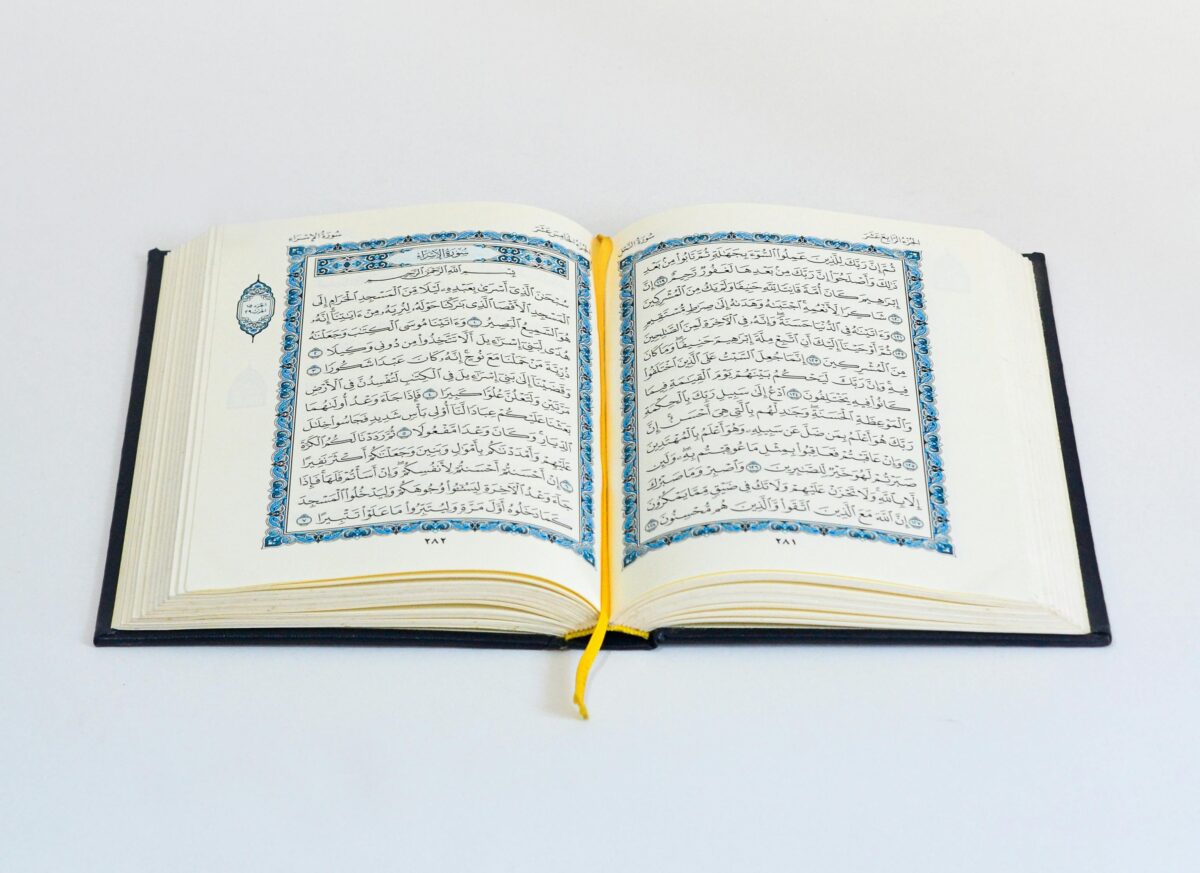Jalees Ahmad, Al Hakam

To read, ponder, and recite the Holy Quran, is what Muslims are regularly encouraged to do, making it a central focal point in their lives. Not only is it imperative, but fascinating, to study beyond the comprehension of its meaning and also delve into and appreciate the style of its language, uncovering the profound truths hidden within.
An effective Quranic study habit
When it comes to studying the Holy Quran, Hazrat Musleh-e-Maudra said:
“Desultory and irregular reading is not fruitful of result. What is therefore required with reference to the study of the Holy Quran is that a certain amount of it should be fixed for daily study and the same [should be] fully read every day. Whatever the amount may be, half a part or one or more, whatever portion may be fixed, should be regularly read every day and by all means be daily completed.” (The Review of Religions [English], Jan & Feb 1920, pp. 4-6)
And so, consistent reading and contemplation are emphasised for fruitful results.
An imagery of spiritual guidance and misguidance
In Surah al-An‘am, Allah states:
“So, whomsoever Allah wishes to guide, He expands his bosom for [the acceptance of] Islam; and as to him whom He wishes to [let] go astray, He makes his bosom narrow [and] close, as though he were mounting up into the skies.” (Surah al-An‘am, Ch. 6: V.126)
The first part of this verse highlights that when Allah Almighty intends to guide someone, He opens their heart to embrace Islam. The phrase “expands his bosom” metaphorically implies that their heart and mind become receptive and open to accepting the truth of Islam.
Then, when Allah allows someone to go astray, their heart becomes constricted and closed off. The imagery of “He makes his bosom narrow” implies that their understanding and acceptance of truth become restricted, as if they are confined in their own misconceptions.
Now that the meaning is clarified, I want to discuss the language and imagery of this verse, specifically: “as though he were mounting up into the skies.”
As one ascends to higher altitudes, the air pressure decreases, leading to a sensation of tightness or difficulty in breathing due to the thinner air. This phenomenon can cause a feeling of chest tightness or constriction, which is why the Quranic verse employs this metaphor to describe the narrowing or constriction of the chest of those whom Allah allows to go astray. It serves as an analogy to convey the spiritual suffocation or restriction experienced by those who are led away from guidance.
Altitude sickness
So, four themes are at play here:
Air pressure decrease: Higher altitudes have lower air pressure, making air thinner.
Less oxygen: Oxygen concentration decreases at higher altitudes.
Breathing difficulty: Due to reduced oxygen, breathing becomes harder.
Chest tightness: This can cause a sensation of chest tightness or difficulty breathing.
This, in science, is called “altitude sickness” or “hypoxia.” According to the National Library of Medicine, “High-altitude physiology can be said to have begun in 1644 when Torricelli described the first mercury barometer and wrote the immortal words, ‘We live submerged at the bottom of an ocean of the element air.’ Interestingly, the notion of atmospheric pressure had eluded his teacher, the great Galileo.”
Further, it states:
“Paul Bert [1833-1886] was the first person to clearly state that the deleterious effects of high altitude were caused by the low partial pressure of oxygen (PO2), and later research was accelerated by high-altitude stations and expeditions to high altitude.” (“Early history of high-altitude physiology”, pubmed.ncbi.nlm.nih.gov/)
Brief answer to a naturally arising question
Now hold on. If in this verse God is saying that He guides and misguides, why are humans to blame if they are misguided? This is the natural question that arises in one’s mind, right?
It does not mean that Allah forcefully makes unbelievers or misers go astray. Allah, in His mercy, creates such conditions to guide individuals away from filth, immoral life, corrupt morals, and bad company, ensuring their habits do not deteriorate and making it easier for them to bear the “restrictions” of Islam. If someone faces difficulty, their chest tightens, making it almost impossible to fulfil their responsibilities gracefully. This is not coercion but mercy.
Declaring Islam with an open heart is not coercion; every individual must declare their readiness to bear the responsibilities of Islam. Thus, there is no compulsion in the conditions created by Allah for the expansion of the chest. If one is willing to tread the paths of closeness to Allah, neither their ego nor their devil should hinder them. Those who declare Islam with an open heart and perform righteous deeds will find their reward assured by their Lord, with no fear for the future and no grief over past mistakes, as their sins will be forgiven, and their future will be filled with divine blessings.
And so, in a nutshell, Allah’s statement of “He expands his bosom for [the acceptance of] Islam; and as to him whom He wishes to [let] go astray, He makes his bosom narrow” is conditional of what is already in the hearts of man, otherwise God would not have revealed Surah an-Nas.
Conclusion
The Holy Quran has long preserved truths that science has only recently begun to uncover, yet it doesn’t present them as novel discoveries. Rather, it mentions these phenomena and their language in passing, focusing primarily on the topic of guidance.
It is as if the author is keenly aware of this phenomenon and doesn’t overly emphasise it. Now, the question arises: How could the Holy Prophetsa have known of such a thing? One must either concede that he was remarkably ahead of his time, possibly even the preeminent scientist of his era and beyond. Alternatively, if this option doesn’t resonate with one’s perspective, they are left to consider that the Revealer of the Holy Quran is an All-Knowing Being, i.e., God Almighty.

